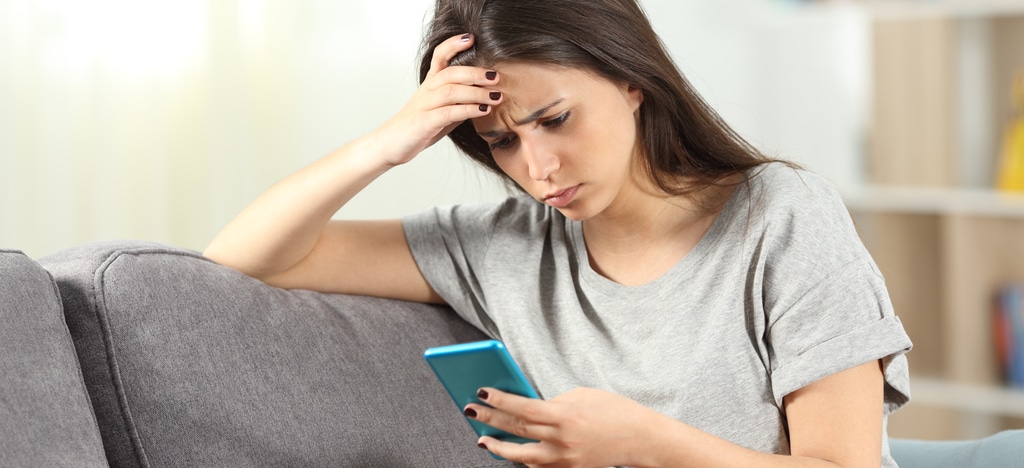What is body image? What is healthy and what isn’t ?
Body image is a multidimensional concept consisting of how we perceive, think, feel and act towards our bodies. It is an impression that is formed by self observation and also noting the reaction of others.
A positive image is when one feels happy and satisfied with one’s body, accepts and appreciates it. A negative body image implies that one is unhappy with their appearance and wants to change their shape/ size or a particular part of their body that they dislike.
Who is affected by a negative body image?
Pre-teens, teenagers and often adults can all fall into the trap of a negative body image. A survey by the National Centre for Eating Disorders notes that girls as young as 7-10 years say that appearance is the most important thing in their life! By 10 years old, 8 in 10 girls agree that looks are more important than ability. Many believe that they are not attractive and weight is a concern mentioned. The condition is commoner in girls but affects boys too.
An online survey of 1118 British teenagers aged 13-19 years conducted by the Mental Health Foundation in the UK in March 2019 suggested that 37% felt upset and 31% felt ashamed in relation to their body image. 40% of them said that images on social media caused them to worry about their body image (20% of adults mentioned the same).
In adults who were studied, 20% felt shame, 34% felt down or low (20% had suicidal thoughts) and 19 % felt disgusted because of body image in the past year!
Why is a positive body image important ?
We know that if one feels good about their body, it results in good self esteem, better mental health and a balanced approach to healthy eating and exercise. It is one of the most important protective factors against development of eating disorders. A positive self image goes hand in hand with high self esteem. Self esteem determines happiness and well being throughout life .
Self acceptance is a central part to positive body image. This makes one more likely to be comfortable with how they look and less susceptible to societal/ media’s pressure to look a certain way. A healthy and balanced approach to food and exercise is easier when one is in tune with one’s body and respond to the needs of your body.
What are the effects of a poor body image ?
- A poor body image often means that these individuals are unable to enjoy life to the fullest – they avoid seeing other people, may shy away from relationships or not want to treat themselves to something simple like a hair-do! They may either avoid exercise or over exercise and may have lost the enjoyment associated with it.
- These individuals are so focused on their body that they forget their strengths and qualities.
- Irritability, self -contempt and social isolation are all possible consequences of under valuing oneself. Often, the symptoms persist into adulthood.
- Low self esteem and feelings of inferiority due to basing one’s self worth on physical appearance alone can trigger eating disorders. Unhealthy eating and over exercising/ purging are aimed at attaining that perfect body which they may or may not achieve, often at the cost of unhappiness. Being resilient protects against development of an Eating Disorder.
- ‘Body Dysmorphic Disorder’ is the extreme end of the spectrum where one sees a distorted body shape/ size/ part. This is linked to anxiety, depression or self harm.
What symptoms and signs in a child would raise concern about a developing negative body image?
- A child may be self critical of his/her body shape, size or a particular body part. She/he may obsess over weight loss or constantly compare their body with others.
- Your child/teen may avoid going out or participating in an activity due to how she/he feels about their body. He/she may not want to try out new things due to this.
- Change in personality – seeming disturbed or withdrawn; spending long hours on the internet/ on social media.
- Low mood, irritability and appearance of an eating disorder – avoiding food, over exercising or associating food with feelings of guilt or shame are alarm bells.
Factors that can cause a negative body image:
Internalisation of various external factors in vulnerable individuals influences how they see and perceive themselves. Perfectionist, high achieving people who often compare themselves to others are at risk.
Important external factors:
- Family environment is known to play a big role in shaping one’s body image – maternal influence seems to be particularly strong in the case of daughters. Weight talk or dysfunctional eating patterns observed in a parent can negatively affect body image whereas a family that models healthy eating and exercise patterns contribute positively.
- Age and gender – body image is usually shaped in late childhood and adolescence with girls being more prone than boys. However the symptoms may well persist into adulthood.
- Attitude of peers e.g. weight-related bullying, fat calling and friends who over emphasise appearance and negative body perception may trigger beliefs about having an ‘imperfect’ body.
- Social media, internet, magazine and reality TV shows are all sources of pressure for young people to look perfect and conform to a ‘lean ideal’ prevalent in the West. Many don’t realise that images in magazines and social media are photo-shopped/ digitally altered and some of the featured people may have used hazardous medication or cosmetic surgery to look the way they do! Many may suffer mental health issues themselves!
- Being overweight or obese increases the risk of body dissatisfaction.
- Sexual abuse is linked to a negative body image.
What can be done to treat or improve body image problems ?
- The role of parents is vital. Puberty can be time of great turmoil therefore listening actively to how your child feels about the physical changes and reassuring them if they appear confused is a good way to start. Highlight the strengths and qualities they display e.g. being sporty and how that defines them rather than how they look. Encouraging acceptance of fixed genetic traits such as colour, build or facial features and helping them to change the way they perceive themselves is an effective technique to help the child build confidence and self esteem. Discourage comparisons with others and emphasise that each of us is unique and special (respect for diversity).
- A balanced approach to diet and physical activity rather that dieting/ fads by the parents sets a good example for children to follow. Weight talk and teasing should be avoided.
- Discussion may be needed around the unrealistic images and impressions received from social media and on the internet. Limiting access is advised.
- Classroom based programmes for young teens focussing on media literacy, boosting self esteem and peer support have shown to be of benefit.
- Large scale programs seem to be focused on obesity and can misfire with messages on optimal weight alone. More work is required on a balanced approach so as not to damage body image in the process.
What can a motivated child do to help themselves ?
The key messaging for children includes:
- Be kind to yourself – focus on all that you CAN do and not on your physical looks alone! Looks are temporary and will eventually fade away. Your qualities will stay with you.
- Be aware of the false images that are often seen on screens and on social media.
- Surround yourself with positive people.
- If you feel that you are dissatisfied with your body or are developing unhealthy eating / exercise habits, you can access help to deal with the issue. If you feel that you can trust a parent, friend, teacher or another adult, do so. Specialised psychologists are available in Singapore to assist with changing negative self perception and behavior.
Agencies that can help
UK resources:
- The National Centre for Eating Disorders – 0845 838 2040
- MIND – 0300 123 3393 ; Email : [email protected] ; Text 86463
- BEAT ( Eating Disorder helpline) – 0808 801 0711
Australian resources:
- The Butterfly National Helpline – 1800 33 4673 ; https://thebutterflyfoundation.org.au – webchat/ email
- Anonymous kids helpine – 1800 551 800 ; https://au.reachout.com –
- Raisingchildren.net.au has resources and counseling help available.

Dr Charu is participating in a talk as part of the Talking Teens series: ‘Body Image, Eating Disorders and Nutrition’ on Friday 24th April.
Click here to book a ticket.




































